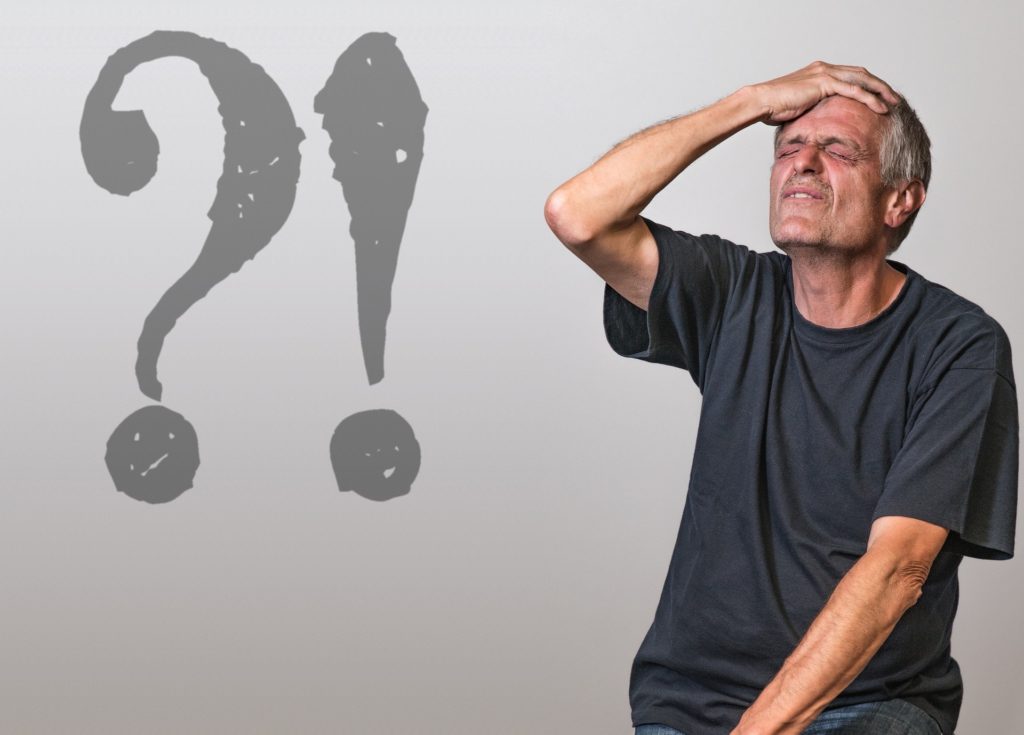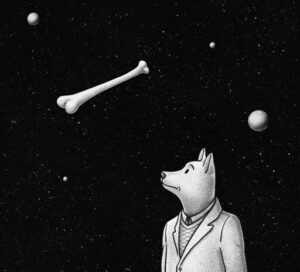I’ve made many blunders with women, but here is the mother of all blunders — the blunder from which many other blunders flowed, like bad water from a tainted well: I idealized relationships. I saw them as magical and transformative. I had way too high an estimate of what they could offer. I expected way too much of them (and by extension, of myself).
I was trapped in a cultural mythology which paints romantic relationships in beatific tones. I think most men are trapped in the same myth.

I spent years wandering in a romantic haze, chasing a mirage. Maybe by discussing my mistake, I can spare you some of that.
The Myth
The culture mythology around romantic love sounds ridiculous when you spell it out, but the programming comes early and covertly, so it gets absorbed without much thought. The myth goes something like this. A romantic relationship provides great happiness and fulfillment. It represents one of, if not the most important experience in life. If you miss out on it — if you lack a romantic partner — then you are missing out on something essential. A relationship is the cornerstone of joy, meaning, and goodness in life. It makes life worth living.
Not only that, but a relationship will transform you into a better person. It will turn you from a boy into a man. Single men are immature, self-centered, and hedonistic. Men in relationships, and especially men who get married, are mature, self-sacrificing, and living meaningful, productive lives. The single man is irresponsible, but the married man is responsible. Men who avoid the responsibilities of relationship and marriage are little boys who refuse to grow up and face adulthood. Relationships make you a man — not just because a woman has given you the stamp of approval, but because you have assumed the responsibilities society says you should. You have a great deal to be proud of.
That’s the myth. I hope we don’t need to go through why all of that is a crock of shit. We’d be here all day. I want to get to the de-mythologizing. But first, a word about where the myth comes from. It will help your demythologizing process, to see the origins.
Where Does the Myth Originate?
I’ll try to be brief here, because I could easily drone on too long about this particular subject. I think it’s worth a quick overview, though. Knowing about the roots helps you appreciate the depth of the programming.
Biology
Evolution has pre-loaded us with a desire to value stable pair bonding, i.e., romantic relationships. That’s not to say it has wired us for lifelong monogamy. No, but it has wired us to have a deeply felt desire for sexual pair-bonding. This is simple evolutionary logic. Through millions of years of human life, long before their were government programs, pregnant women and their cavekids would have much greater chances of survival if the male was emotionally invested in protecting, providing for, and caring for both the woman and the kid. We are the descendants of ancestors who were most driven to couple up. Over millions of years, this process has shaped human beings to feel strong drives and needs for relationship.
Our biology pushes us powerfully in the direction of romantic-sexual relationships. This should not be news to anyone past puberty. We experience these relationships as essential to our well-being. It is nearly as strong as acute hunger sometimes, although it appears as an emotional tug, an emptiness in the heart rather than the stomach, mixed with stirring in the loins.
This is all driven by our biology. We swim in a neurochemical and hormonal soup that is brewed to make romantic love all-important. We crave women and relationships with them, and we will go to great lengths to acquire them — at least when the biology is in full force. Great emotion, passion, and hope are invested there. We feel that our greatest fulfillment lies in a woman’s arms. Evolution has decreed it so.

Religion
Religion is a double-edged sword in this area. On the one hand, it tells you that marriage is the natural state of man and woman, God’s natural calling. That runs contrary to anthropological findings, but never mind. God said, “It is not good for man to be alone,” and so he created Eve. The church is primarily a coupled community which centers around marriage and family. For millennia, Christianity has told us that men are better off married, unless they are a priest or a monk. About a century ago, nearly every male followed that dictate and was married. Things have changed, but the message is still there.
On the other hand, the influence of religion has faded quite a bit. As many cultural observers have pointed out, this has left a spiritual void for many people. It is not too far-fetched to suggest that some people have made relationships into a kind of Holy Grail. They see romantic relationships as something sacred, their primary source of meaning and purpose in life. This is too much for a relationship to bear.
Culture
Men are trained to believe that seeking and finding a good romantic partner is, next to career, the most important mission in life. Most men tend to be goal-oriented or mission-oriented, so if you tell them this is the mission, they’ll take it up. And that’s what we tell men from the time they are boys: love and work are the two most important things in life. Get your career and get your woman. That is your assignment. Don’t screw it up. Not only your happiness is at stake, but your very manhood.
We get the messages from all angles. We get it from TV, movies, music, and ads. We get it from family, friends, and peers. If you are a man well into his 20s and haven’t secured a good relationship, you are viewed as a failure and less of a man. There is a good deal of pressure to couple up.
At the same time, culture also presents a very distorted picture of relationships themselves, which makes things more difficult. The portraits we see of relationships in the movies, for instance, are ridiculously unrealistic.
So from one side, culture tells us that romantic relationships are the be-all, and that if you aren’t in one, you’re missing a vital human experience. And meanwhile, it also gives us a very distorted picture of what relationships are, how they work, and what they can offer. The treasure is irreplaceable, and here’s a lousy map that will lead you in circles.
Those are the main sources of the myth — biology, religion, and culture. As a result of these interacting influences, romantic love becomes the pole star around which men’s lives revolve.
Demythologizing
How do we get out from under this? Well, first I should say, you don’t have to if you don’t want to. There are plenty of benefits for believing the myth, and I’m not here to try to persuade you to give it up if you’re not ready.
In fact, let’s start there. Ask yourself these questions:
- How do I benefit by believing this myth?
- How would I suffer by letting go of it?
We rarely choose beliefs based simply on truth vs. falsehood. We usually have motives for believing one thing or another. You may have good reasons to believe in the myth.
For instance, maybe believing in the romantic myth gives you a warm feeling in your heart. Maybe it gives you something to hope for. Maybe it stirs dreams and fantasies. Maybe it feels like something meaningful and worthwhile that you don’t want to surrender. You don’t want to give up the warm feelings. You don’t want your hopes dashed and your fantasies dissolved. Maybe you are afraid that if you gave up the romantic myth, you’d become a cold, indifferent loner. Or maybe you’d have to figure out something else to organize your life around, and you don’t have any other significant purposes to replace it. There could be any number of motives.
Again, I’m not suggesting you “should” give up the myth. It’s up to you. Either way, though, I think it’s best to acknowledge the reasons we have for holding on. They are always there, and pretending they aren’t just makes the process harder.
Assuming you decide you want to demythologize, though, I have a few suggestions.
First, recognize that we are dealing with myth. It is a story we have been taught to believe. It is not something we decided on. It is something that was implanted in us, before we had the ability to think about it.
Second, question the myth. Is it true? Ask these sorts of questions:
- Is romantic love the most important experience in human life?
- If you don’t have a relationship, are you missing out on something vital?
- Is a romantic relationship mysterious, beautiful, and magical?
- Do romantic relationships transform you from a boy to a man — from immature to mature, from irresponsible to responsible, from selfish to selfless?
You could add other questions, but those are good to start with.
Third, think about the advantages of letting go of the myth. I can name a few:
- You will be more effective with women, because you aren’t walking around in a romantic haze
- You will be more realistic in your expectations of relationships, because you aren’t expecting so much. Therefore, your relationships with women will be more satisfying.
- You can freely choose whether to be in relationships, as opposed to feeling compelled by the mythology
- You can enjoy your single life more
- You can spend all the time, energy, and money you save on other things that matter to you
- Your self-esteem will go up, because you are honoring reality rather than avoiding it
- You will be motivated to find other sources of meaning and purpose in life
You can probably add some more of your own. We talked about the advantages of believing the myth earlier, but look at the advantages of demythologizing, too. That can help you change.

Fourth, realize that there is more to life than romantic love. There are many ways – not just one – to have a happy, fulfilling, meaningful life. To think that romantic love is the be-all, end-all of human existence, and that you’re missing something vital without it, is simply a failure of imagination. How about acquiring wisdom? How about learning and personal growth? How about meaningful work? How about developing character or spirituality? How about helping the world to be a little better place?
Fifth, if you want to free yourself from the delusional picture of romantic love that we all get indoctrinated with, listen to other men talk about their relationships. Not the married guys with their tales of wedded bliss. Not the socially approved, pleasant-sounding stuff that is so familiar. I’m talking about the other side of the story – the side you don’t hear much about, because it is unpleasant and because it upsets people.
Listen to the guys whose lives have been ruined by crazy women. Listen to the guys whose lives and hearts have been crushed in divorce court. Listen to the tens of thousands of men who have had miserable experiences in dating and relationships. If you want to dissolve the delusional idealizations, there is no better solvent than listening to men talk about their actual experience.
Sixth, even if you consider love a high value (which it is, when practiced well, not in sham form), romantic-sexual love is just one of many types of love, not the only or best one. There are many ways to extend kindness, benevolence, and compassion. Romantic love is just one form, and it has a long list of downsides not present in other forms of love.
Seventh, it makes zero sense to base your self-esteem on whether you have a stable romantic-sexual relationship or not. That is a lousy criterion of manhood and self-worth. It is an incredibly low bar, as you can see by looking around at all the mediocre men in relationships. Relationship status depends on many things that are not exactly badges of honor, such as the willingness to conform to cultural scripts. And much of it is out of your control anyhow (e.g., physical appearance, innate personality, etc.).
Be good to yourself. If you’re going to judge yourself, do it by internal criteria, things you genuinely believe are admirable, and things that are under your control — such as the thoughts you cultivate, the actions you take, your character and principles. To do otherwise is just to make yourself a pawn of biology and culture.
Don’t Make My Mistake
I wasted far too much time believing in a grossly distorted view of romantic-sexual relationships. I spent far too much energy searching for a Holy Grail that turned out to be a mirage.
Don’t make the same mistake I did. Don’t idealize sexual-romantic relationships. They aren’t nearly what they are cracked up to be. If you decide to spend your life pursuing them, I wish you the best; just go into them clear-eyed and realistic, unplugged from the biologically enabled cultural delusions.

Deeply resonant, Sir.
Thank you for sharing.
Great post!
I hope you don’t stop there and dive deeper into deprogramming and exploring yourself. Exploring who you are, what your perceived limitations are, what you are truly capable of, etc.